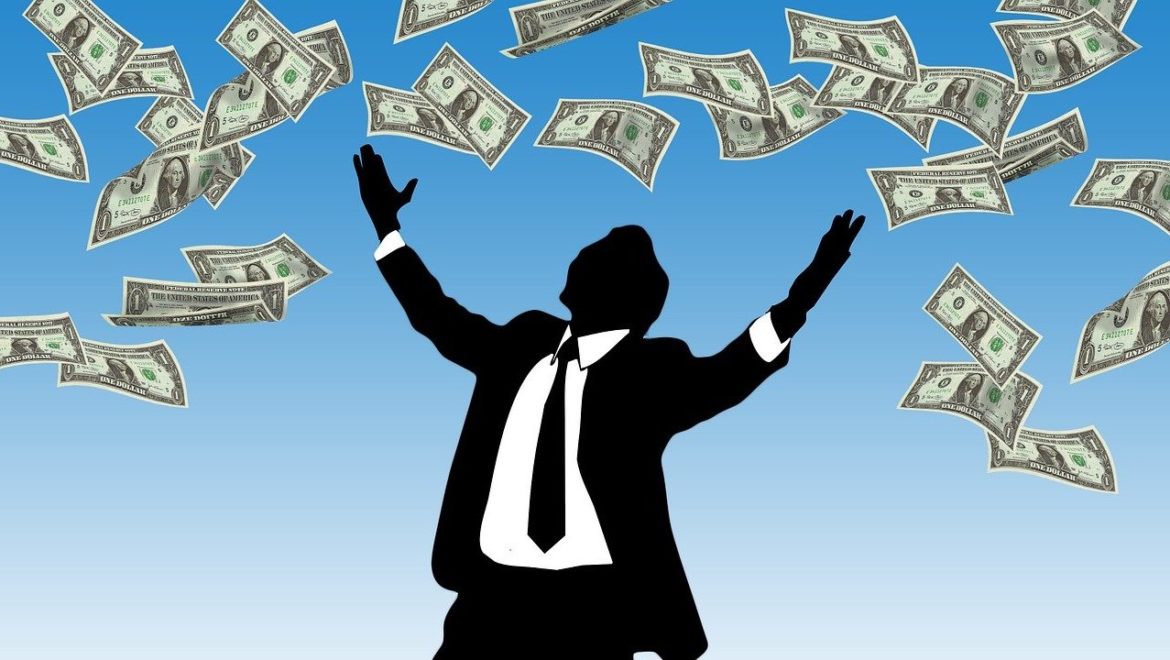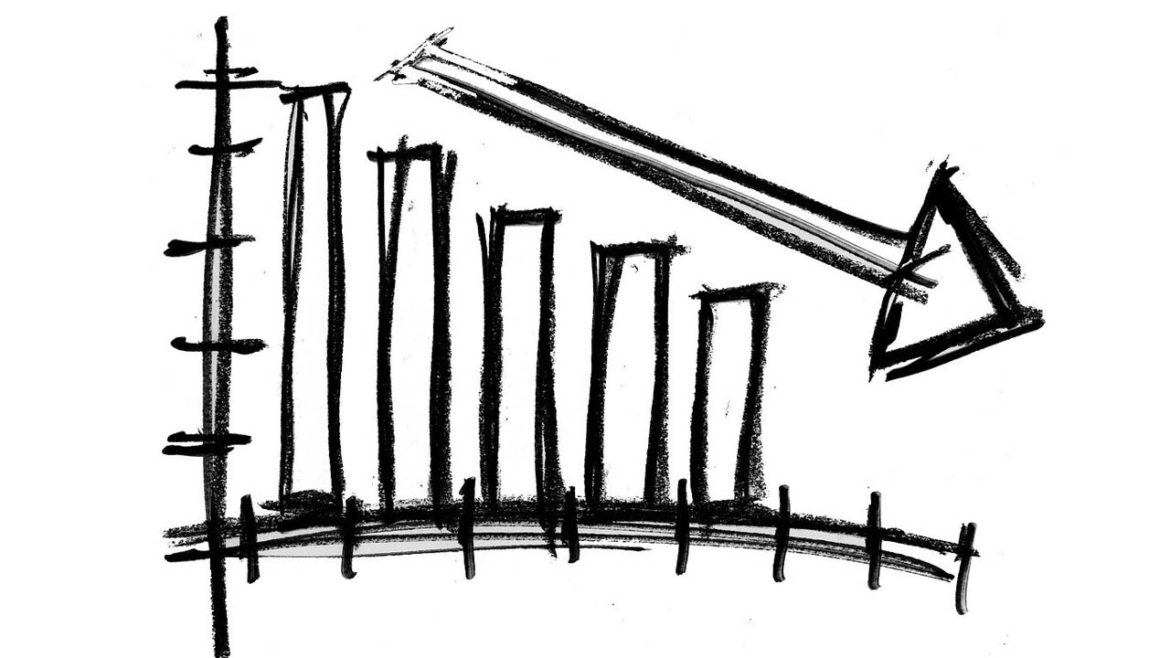Gold has all the potential to go unprecedentedly high. But silver will be gold on
Site:
Precious metals news
The April trade deficit came in at -$74.5B which was the largest trade deficit since October 2022.
With the passage of the Fiscal Responsibility Act of 2023, the fake debt ceiling fight is over.The federal government walked away from the deal with a shiny new credit card that has no limits.And what did we get?Spending "cuts" that actually increase spending and another great big tax increase.
Most people in the mainstream concede that the economy is heading for a recession, but the consensus seems to be that downturn will be short and shallow. Projections by the World Bank undercut that optimism.According to the World Bank, global growth in 2023 will slow to the lowest level since the 2008 financial crisis.
Gold prices steadied in a tight range on Tuesday as optimism that the U.S. central bank will not hike interest rates this month kept the dollar under pressure. Spot gold XAU= held its ground at $1,960.89 per ounce by 0239 GMT. U.S. gold futures GCcv1 edged 0.1% higher to $1,976.80.
Under a CBDC, a time-stamped ledger of every single transaction by every single individual and/or firm would create threats to privacy.
Pretending things were not as they really were left us all with a worse world — just as the media did with the Fed when it pretended the Fed was right about inflation being transitory and all simply parroted the narrative they were force-Fed.
For many, the jobs data is just too good to be true. The BLS has a long history of cooking the data to paint a rosy picture.
Gensler has been in the spotlight for months, as his agency ramps up enforcement against crypto companies. When he testified before Congress back in April, Gensler refused to answer whether ether was a security or a commodity.
Jun 6, 2023 - 10:26:40 PDT
Gensler didn’t hold back his feelings on the industry’s significance: “We don’t need more digital currency. We already have digital currency. It’s called the U.S. dollar, it’s called the Euro, it’s called the Yen. They’re all digital right now […] so what’s the real underlying value of these tokens?”
Two Federal Reserve decisions next week will shape a global economy whose growth the World Bank predicts will slump this year and remain “frail” through 2024.
 UPS Strike Looms in a World Grown Reliant on Everything Delivered Everywhere All the Time
UPS Strike Looms in a World Grown Reliant on Everything Delivered Everywhere All the TimeJun 6, 2023 - 09:20:08 PDT
The last time UPS workers walked of the job more than two decades ago, it crippled the shipping company. An emboldened union is threatening to do the same and this time the disruption would be far greater. The 24 million packages UPS ships on an average day amounts to about a quarter of all U.S. parcel volume, according to the global shipping and logistics firm Pitney Bowes. UPS says they deliver the equivalent of about 6% of nation’s gross domestic product. The Teamsters, representing about 350,000 UPS workers, say they'll strike if there's no deal by the time the current contract expires July 31.
Jun 6, 2023 - 08:52:11 PDT
The Fed’s man-made housing market downturn has been so sharp that when the Fortune 500 list was unveiled on Monday, it was missing four major real estate companies, which had been on the list last year. That includes Rocket Companies (which was No. 282 on the Fortune 500 list unveiled in June 2022), Zillow (No. 424 last year), Anywhere Real Estate (No. 427 last year), and Compass (No. 495 last year).
 'Commercial Real Estate Is Melting Down Fast'- Home Prices Will Be The Next To Crash
'Commercial Real Estate Is Melting Down Fast'- Home Prices Will Be The Next To CrashJun 6, 2023 - 08:50:34 PDT
As a serial entrepreneur who co-founded Tesla Inc., revolutionized the electric car industry and is sending rockets into space, Elon Musk isn’t known for being a real estate guru. But lately, the billionaire has been sounding the alarm for the sector. “Commercial real estate is melting down fast,” Musk said in a recent tweet. “Home values next.”
Blackstone real estate investment trust (BREIT) is known as one of America’s largest and most dependable privately held REITs when it comes to delivering investor returns. However, 2023 has proven to be a difficult year for real estate investors, and Blackstone is not immune. As of May 1, 2023, Blackstone announced it is limiting investor withdrawals from its REIT, which is worth an estimated $70 billion. This move is not a new trend, as Blackstone has been limiting monthly investor withdrawals
Jun 6, 2023 - 08:46:54 PDT
Virginia-based REIT Park Hotels & Resorts has opted to cease payments on a $725 million loan, as the SF Business Times reports today, essentially surrendering over 2,900 hotel rooms and hospitality facilities to its lender. This includes the 1,921-room Hilton San Francisco Union Square, which is San Francisco's largest hotel, occupying an entire city block, and one of the country's largest hotels outside of Las Vegas.
Jun 6, 2023 - 08:43:52 PDT
The market had frozen over. There were no transactions because no one knew what anything was worth as San Francisco’s office market has morphed in just a few years from being one of the hottest office markets in the US with a vacancy rate of 7% in 2019 and some of the highest rents in the US, to being put on ice by working-from-home. About 33% of all office space is now on the market for lease – worse even than Houston, which was for years the worst office market in the US.
Jun 6, 2023 - 08:38:09 PDT
Phil Hall reports that Fitch Ratings reduced its 2023 outlook for the U.S. real estate investment trust (REIT) sector outlook from “Neutral” to “Deteriorating,” citing the tumult in the commercial real estate space.
Jun 6, 2023 - 06:34:30 PDT
A Gallup asset class survey conducted in April 2023 finds that 26% of the American public think that gold is the best long-term investment.
The World Bank said on Tuesday that the global economy remained in a “precarious state” and warned of sluggish growth this year and next as rising interest rates slow consumer spending and business investment, and threaten the stability of the financial system.
lmost everyone talks about moving away from the US dollar as the world’s main currency for trade and finance. Those supporting this idea argue that diversification of currency reserves and increased use of regional currency arrangements could contribute to a more balanced international monetary system. From the major economic formations such as Brics (Brazil, Russia, India, China and South Africa) and Asean (Association of Southeast Asian Nations) to smaller players such as Kenya, all have added their voices to the debate.





